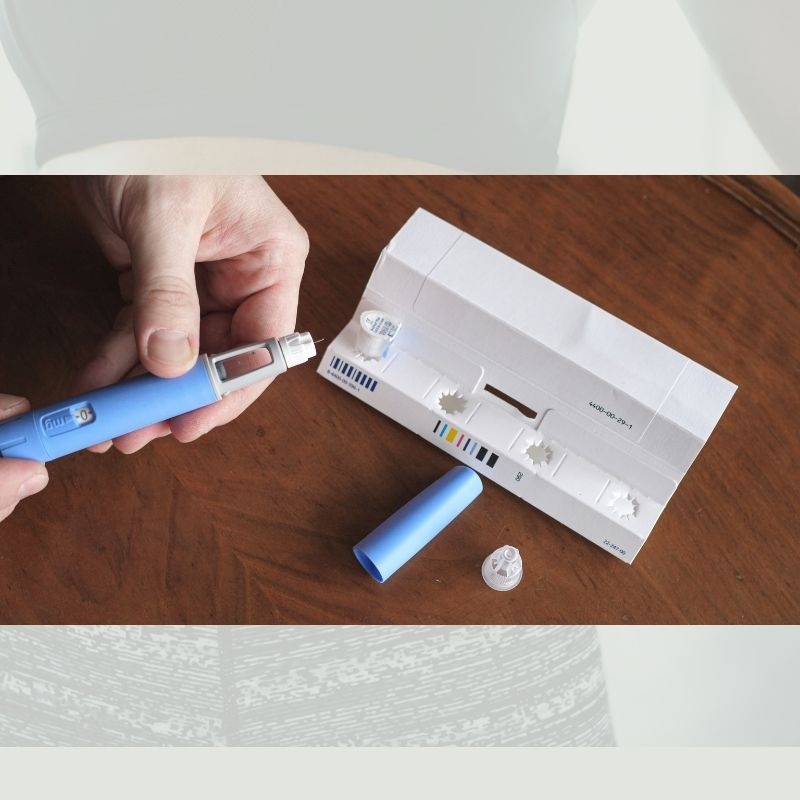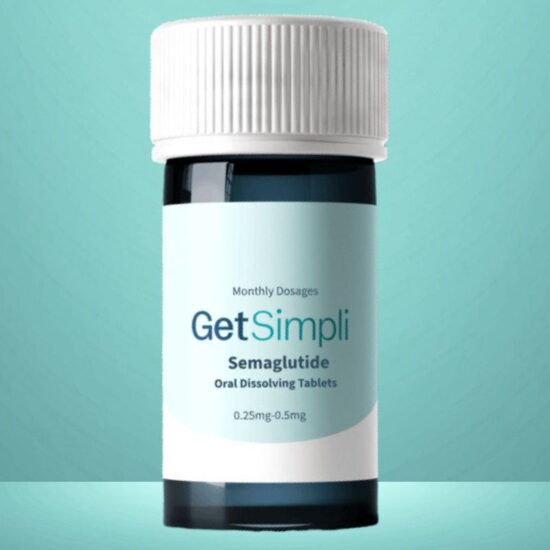$1,000.00
Discover Amgen MariTide, an innovative monthly weight loss solution designed to help you achieve up to 20% body weight reduction. This groundbreaking GLP-1 medication, enhanced with a monoclonal antibody, stays effective longer, requiring just one dose each month. Perfect for those struggling with obesity, MariTide not only aids weight loss but also improves blood sugar levels and reduces heart disease risk factors. Experience a simpler, more effective approach to weight management that fits seamlessly into your lifestyle. Choose Amgen MariTide for a healthier, happier you—because achieving your weight loss goals should be easier and more accessible!
Description
As physiotherapists at KIMAWellness.com, we prioritize evidence-based, patient-centered approaches that holistically address movement, metabolism, and long‑term wellness. MariTide—a monthly injectable weight‑loss drug by Amgen—has surfaced as a promising option in obesity care. Here’s our deep dive into its science, clinical trial data, pros and cons, implications for physiotherapy-supported wellness, and future outlook.
Understanding MariTide: Mechanism & Innovation
-
Mechanism of action: MariTide (maridebart cafraglutide/AMG 133) is a bispecific molecule combining two actions—it activates the GLP‑1 receptor (enhancing satiety, delaying gastric emptying, boosting insulin) while antagonizing the GIP receptor (modulating fat storage pathways).
-
Long‑acting design: It employs a peptide‑antibody conjugate that prolongs its therapeutic effect, enabling once‑monthly subcutaneous dosing—a major convenience upgrade over weekly GLP‑1 therapies like Ozempic or Wegovy.
-
Pharmacokinetics: One source notes a half-life ~21 days—triple that of weekly options—supporting this less frequent injection format .
Clinical Efficacy: Phase 2 Findings
-
Study design: Over 592 adults were treated for 52 weeks in Phase 2. Cohort A (no diabetes) and Cohort B (with type 2 diabetes) both received varying fixed doses (140 mg, 280 mg, 420 mg) or dose‑escalation regimens Amgen+1.
-
Weight‑loss outcomes:
-
Up to ~20% average weight loss in non‑diabetic individuals vs. ~2.6% for placebo.
-
Up to ~17% average weight loss in participants with type 2 diabetes vs. ~1.4% placebo.
-
Importantly, weight loss had not plateaued by 52 weeks, suggesting further potential with continued treatment.
-
-
Cardiometabolic improvements: Demonstrated improvements in HbA1c (up to 2.2 percentage points in diabetic patients), blood pressure, lipid profiles, hs-CRP, and reduction in waist circumference.
Tolerability, Dropouts & Safety Profile
-
Gastrointestinal side effects: Common GLP‑1‑related AEs—nausea, vomiting, constipation—were reported, especially at higher fixed doses.
-
Discontinuation rates:
-
Fixed-dose groups: 13%–27% dropped out due to gastrointestinal events .
-
Dose‑escalation groups: improved tolerability, with <8% dropouts due to GI symptoms .
-
-
Impact on investor sentiment: These tolerability concerns triggered an ~6% drop in Amgen’s shares on June 23, 2025, and similar declines were noted in other reports .
-
Dose escalation adopted: Phase 3 trials are now initiating with gradual dose ramp-up protocols to mitigate AEs—starting at 21 mg before escalating to 35 mg and 70 mg over eight weeks.
-
Ongoing safety monitoring: No unexpected safety signals (e.g., bone density, free fatty acids) were noted, but vigilance remains essential.
Phase 3 Program: MARITIME
-
Scope: Two pivotal Phase 3 trials—MARITIME‑1 (overweight/obesity without diabetes; ~3,500 participants) and MARITIME‑2 (with type 2 diabetes; ~999 participants)—target primary endpoints at 72 weeks for percent weight change .
-
Readout timeline: Both expected in early 2027 .
-
Broader indications: Additional Phase 3 trials planned in cardiovascular disease, heart failure, kidney disorders, and obstructive sleep apnea .
-
Dose-escalation strategy: Proactive inclusion of ramp‑up dosing at trial start to reduce GI adverse events.
Perspective from the Physiotherapy & Wellness Lens (KIMAWellness POV)
Advantages & Integration Potential
-
Monthly dosing aligns well with therapy schedules, helping patients avoid weekly injection fatigue and supporting adherence.
-
Substantial weight and metabolic improvements can enhance mobility, reduce joint load, elevate exercise capacity, and empower functional rehabilitation.
-
Psychological uplift: Achieving measurable progress can reinforce motivation and complement movement-based interventions.
Cautions & Considerations
-
GI intolerance may temporarily reduce activity tolerance; physiotherapists should tailor exercise intensity and hydration strategies accordingly.
-
Dropout risk means close coordination with prescribing clinicians is vital—ensuring dose escalation protocols and patient education are aligned.
-
Long-term outcomes are pending; we must avoid overpromising and continue to emphasize sustainable lifestyle and movement habits.
Wellness-Driven Recommendations
-
Encourage gradual exercise progression, particularly during titration periods, to allow adaptation.
-
Focus on functional strength, balance, and mobility, potentially amplifying gains from weight reduction.
-
Incorporate nutrition support, mindful eating strategies, and stress management for holistic benefits.
-
Monitor psychological wellbeing, particularly mindful of potential mood shifts that can accompany rapid weight loss.
Summary
MariTide has shown impressive efficacy, with clinical trials reporting up to around 20% average weight loss in non-diabetic participants and about 17% in those with type 2 diabetes. These results were accompanied by notable cardiometabolic improvements, including better blood sugar control, reduced waist circumference, and improved cholesterol and inflammation markers.
The dosing schedule is particularly appealing—administered just once a month, with potential for even less frequent quarterly injections in the future. This convenience could make adherence easier for many patients compared to weekly regimens.
From a safety perspective, gastrointestinal side effects such as nausea and vomiting have been the main concern. These appear to be mitigated when a dose-escalation approach is used, allowing patients’ bodies to adjust more gradually to the medication.
Looking ahead, the Phase 3 MARITIME trials are large-scale studies spanning 72 weeks, with final results expected in early 2027. These will provide clearer insights into long-term safety, sustained weight loss, and broader health impacts.
From a wellness and physiotherapy standpoint, MariTide has the potential to support greater engagement in physical activity by improving mobility, reducing joint strain, and enhancing overall quality of life. However, these benefits will be maximized when paired with supportive, adaptive care strategies and ongoing lifestyle guidance.
Final Reflections
MariTide emerges as a promising, innovatively designed weight-loss therapy, offering powerful efficacy and patient convenience. From our vantage at KIMAWellness, it holds notable potential to synergize with physiotherapy-led wellness strategies—boosting functional outcomes, motivation, and long-term adherence.
However, its tolerability profile, particularly GI-related challenges and discontinuation rates, must be carefully managed. The Phase 3 results in 2027 will be pivotal in clarifying its safety, durability, and real-world applicability.
In the meantime, physiotherapists should stay informed, coordinate with metabolic care teams, and continue to emphasize movement, education, and sustainable lifestyle habits—which remain the cornerstone of effective, lasting weight wellness.




